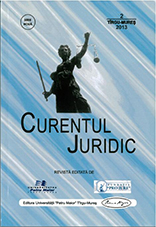Author(s): Ana-Maria Marinescu / Language(s): Romanian
Issue: 1/2014
Public lending right is one of the economic rights establish in the favour of the rights holders.
Some of the characteristics of the systems implemented in the world regarding public lending right, are the following:
– The general fund is allocated from the state budget system, central or local. In general, the remunerations distributed to the rights holders are modest, establishing maximum and minimum remunerations to be paid. In most states, for example the ones from the European Union, the remuneration is calculated based on the number of loans of the work made through public libraries (Estonia, Germany, Iceland, Israel, Latvia, the Netherlands, Slovenia, UK), or remuneration is paid depending on the number of copies of books of an author under the stock libraries (Australia, Canada, Denmark, New Zealand), or on the number of users of public libraries, or through direct grants to the rights holders (Norway).
– In some systems, the remuneration shall be distributed also to pension funds, health insurances, grants or scholarships (for example, in Austria 50% of funds are allocated to the social needs of the authors, in Germany 55% for health insurances, in Slovenia 50% for scholarships, in Sweden and France for supplementary pensions).
– Also, the systems establish eligibility criteria for rights holders, usually they have to register their works within the system, they must be citizens or have permanent residence in the country in which the system is implemented and must distribute remunerations also for the foreign rights holders based on reciprocal agreements concluded with similar bodies abroad. In Australia, Germany and France, the remunerations are distributed also to publishers.
– Some systems provide the payment of remunerations for public lending right in order to support literature in their own language (Scandinavian countries, Slovenia), while others are extended to other works of intellectual creation as audio or video materials and works of fine art and graphics (Netherlands, France).
– The systems are taking into account the loans made through public libraries, in some states excluding university and schools libraries.
More...

